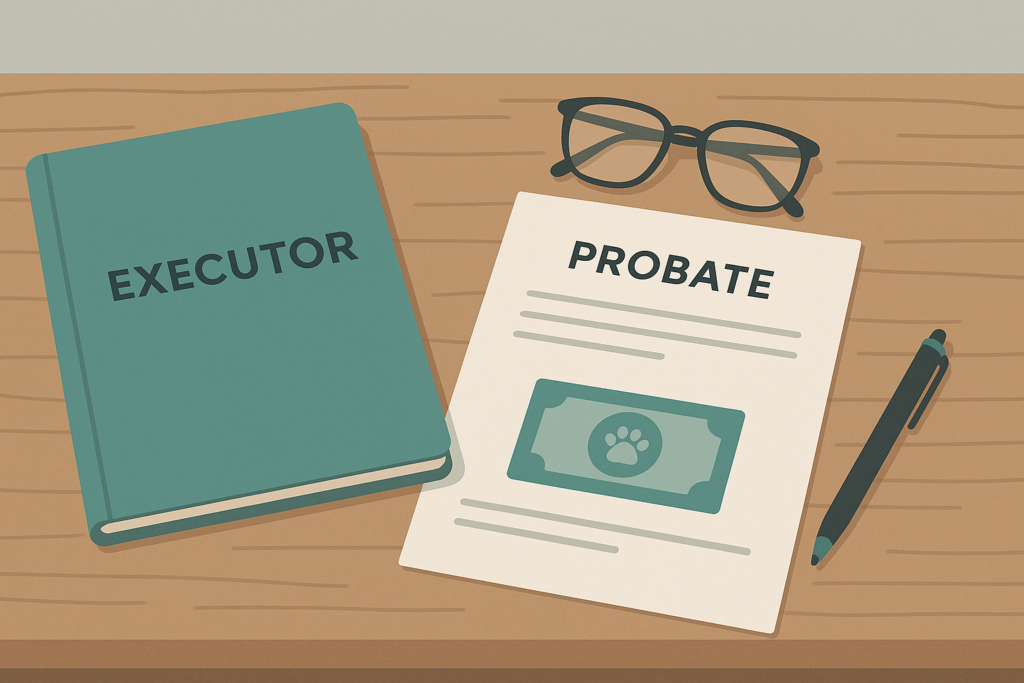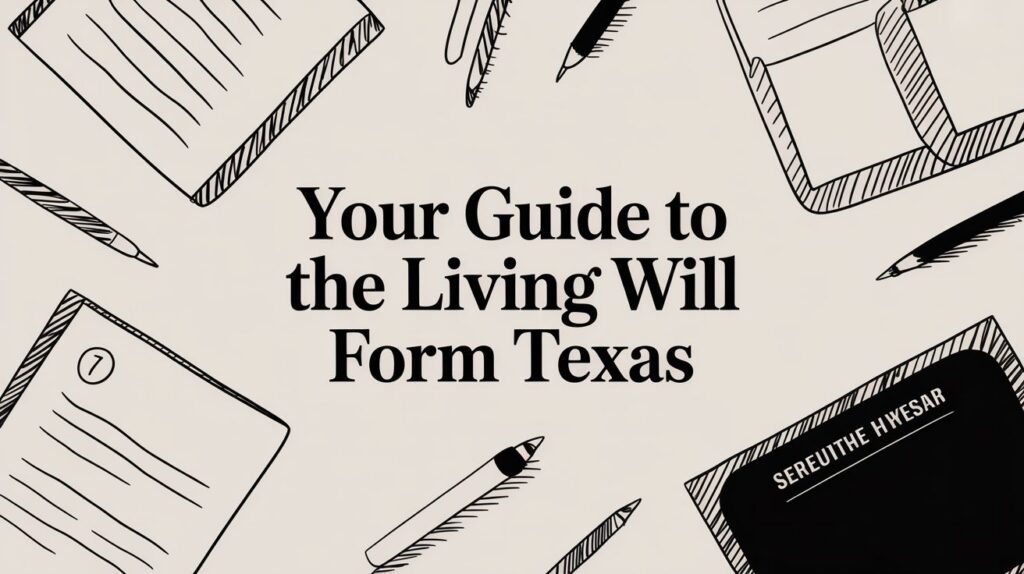When families in Texas lose a loved one, emotions naturally run high. Unfortunately, in many cases, the probate process can add legal and financial stress on top of an already difficult time. The word “probate” might not ring many alarms until you find yourself trapped in court proceedings and facing unexpected pitfalls. While this legal process exists to validate wills and distribute estates, it can become a nightmare if poorly planned. Below, we explore some real-life probate horror stories in Texas, what factors typically cause them, and, most importantly, how you can avoid them through proper estate planning.
Understanding Texas Probate
Probate is the legal process where a court validates a decedent’s will (if it exists) and ensures that any outstanding debts, taxes, and other obligations are met before distributing assets to beneficiaries. Each state has its own probate rules, and Texas is no exception. In fact, the Texas Estates Code sets out specific procedures that can be more or less complex depending on the nature and size of the estate, as well as the presence or absence of a will. By looking at Texas-specific guidelines, families can better prepare for—and possibly avoid—probate nightmares.
Definition of Probate

At its core, probate involves:
- Submitting the deceased person’s will (if one exists) to the probate court.
- Appointing an executor or administrator to handle the estate.
- Identifying and valuing the estate’s assets.
- Paying off any legitimate debts or taxes.
- Distributing the remaining assets in line with the will or, if there’s no will, with Texas intestacy laws.
When a will is valid and uncontested, the process can sometimes be quick and relatively painless. However, numerous factors—such as conflicting wills, incomplete documents, or family disputes—can drag out the process for months or even years. These drawn-out proceedings often lead to significant legal fees, strained relationships, and the dreaded “horror stories” that we so often hear about.
The Texas Probate Timeline
Texas does offer some advantages over other states when it comes to probate. For instance, the state has what’s called an “independent administration” option, which can streamline things if the will specifically designates an independent executor or if all heirs agree to one. This means fewer court hearings and, potentially, less cost.
However, this streamlined track still has rules and deadlines. As a quick snapshot:
- Within four years of death: The will must generally be submitted for probate.
- Within 90 days of qualification: The executor typically has to provide an inventory of the estate’s assets to the court.
- Handling debts and taxes: Creditors have a specific timeframe to submit their claims.
While these rules are designed to keep the process organized, missing any of them or misunderstanding their importance can cause costly headaches.
Real-Life Probate Horror Stories
Below are some cautionary tales that highlight how quickly probate in Texas can turn into a nightmare. Although each case has unique details, they often share one trait in common: a lack of planning and communication.
The Lost Will
One Texas family found themselves in probate limbo because their patriarch had a will—but nobody knew where it was. According to relatives, he had told them years before that he drafted a formal document. After his death, the family spent weeks searching file cabinets, safe-deposit boxes, and even old e-mail accounts, but never found the actual will.
Because Texas law requires the original will for probate (or at least a legitimate copy if the original is proven lost), the family was forced into an intestate situation. This meant the court had to follow the strict lines of inheritance set by Texas statute rather than the patriarch’s alleged wishes. Assets the patriarch reportedly wanted to bequeath to a close friend ended up going to a distant family member, creating deep emotional rifts. The entire affair consumed thousands of dollars in legal fees and countless hours in court.
Disputed Inheritance
A second, equally troubling scenario arose when a father left behind two different versions of his will. In the first, he left the family home to his daughter. In the second, drafted some years later, he left it to his second wife. Unfortunately, the second wife had never filed the updated will with the court, and the daughter claimed the document was forged or created under undue influence.

The probate process dragged on as both parties hired handwriting experts, and multiple hearings were set to consider witness testimony. Court costs and attorney fees soared. Family members on both sides testified against each other, fracturing relationships that were once harmonious. In the end, the judge ruled the second will valid, but the bitterness lingered, leaving scars within the family that remain even after the legal process ended.
Common Causes of Probate Issues
While probate horror stories may seem random, they often stem from a handful of common mistakes or oversights. Understanding these can help individuals and families in Texas avoid falling into the same traps.
- Lack of a Will (Intestacy)
If someone dies without a will in Texas, their estate is distributed according to rigid intestacy laws. This often neglects personal preferences and can trigger lengthy probate proceedings if disputes arise among heirs. - Poorly Drafted or Outdated Documents
Wills, trusts, and beneficiary designations need periodic updates. If your will references an asset you no longer own or fails to mention newly acquired property, it creates confusion. Similarly, naming an ex-spouse as a beneficiary can lead to chaos if your family contests the will. - Failure to Communicate
Even well-drafted estate plans can cause conflict if heirs or executors are unaware of them. Not telling relatives or trusted friends where to find important documents can lead to the “lost will” scenario, causing the estate to go through intestate procedures. - DIY Legal Advice
Too many people try to draft their own wills without consulting an attorney. While forms and templates exist, they often overlook Texas-specific rules. A small oversight can invalidate the entire will or trigger a will contest.
How to Avoid Probate Problems
The good news is that probate horror stories aren’t inevitable. With proper planning, you can prevent many of the issues that lead to heartbreak and legal battles. A bit of foresight now could save your loved ones from stress and hefty legal bills down the line.
Proper Estate Planning
The cornerstone of avoiding probate issues is a comprehensive estate plan, starting with a valid will. Texas law requires specific formalities for a will to be recognized by the court. These usually include:
- Being at least 18 years old and of sound mind.
- Signing the will in the presence of two credible witnesses over the age of 14.
- Including a “self-proving affidavit” that helps the will bypass certain court procedures.
It’s wise to keep your original will in a secure but accessible location—like a waterproof and fireproof safe—and inform at least one family member or trusted friend about its whereabouts. Periodically updating your will is also essential if your family situation, business holdings, or assets change significantly.
Living Trusts and Other Tools
In Texas, setting up a revocable living trust can help you bypass or reduce probate. With a living trust, assets are placed into a trust with you typically acting as the initial trustee. When you pass away, the designated successor trustee can distribute assets without going through the probate court (assuming all relevant assets are in the trust).
Other strategies include:
- Payable-on-death (POD) accounts: Bank accounts that directly transfer to a named beneficiary upon your death.
- Transfer-on-death (TOD) deeds: In Texas, real property can be deeded to heirs upon death without probate.
- Beneficiary designations: Always ensure your retirement plans and insurance policies list the correct beneficiaries.
While these tools don’t cover every situation, they can dramatically streamline the transition of assets and keep your family out of probate court.
Working with Qualified Professionals

Estate planning can be complicated, particularly if you own real estate, run a business, or have minor children. A qualified estate planning attorney or financial advisor who’s experienced in Texas law will help you navigate the nuances. They can advise whether you need a trust, how often to revisit your will, and what steps to take if family dynamics shift. By enlisting professional help, you minimize the risk of missing critical legal or financial details that could lead to horror stories later.
Strengthening Family Communication
Although solid legal documents are essential, communication within the family is equally important. Here are a few tips for fostering open dialogue:
- Share Estate Intentions
You don’t have to divulge every detail of your estate plan, but giving your children, spouse, or other key individuals a broad overview reduces the chance of surprises that fuel will contests. - Name Executors Wisely
The executor (or personal representative) plays a pivotal role in carrying out your wishes. Choose someone you trust and who can handle administrative tasks effectively. If you expect tension among beneficiaries, picking a neutral, professional executor might be the best path. - Address Issues Early
If you sense potential conflicts—for example, between siblings—try to mediate before you pass away. Lay out your reasoning or involve them in the conversation so they understand your decisions.
Navigating Complex Situations
Certain life events can complicate probate even with a will in place:
- Second Marriages and Blended Families
Texas law can produce surprising results if you leave children from a prior marriage and a surviving spouse. Clear estate planning documents reduce the risk of a contested will. - Out-of-State Property
If you own real estate outside Texas, you may face an “ancillary probate.” Setting up a trust or other planning tools can save your family from juggling multiple probate courts. - Special Needs Beneficiaries
If one of your beneficiaries has special needs, setting up a trust tailored to preserve eligibility for government benefits can keep the estate settlement process smoother.
In each of these situations, specialized guidance is invaluable. Consulting with legal or financial experts ensures that your estate plan accounts for every complexity.

The Cost of Doing Nothing
Failing to plan is, in fact, a plan—just not a good one. Dying without a will (known as “dying intestate”) in Texas means the court follows strict rules about who inherits and how much. These rules might contradict your personal wishes. Moreover, intestate estates may require formal administration, which takes longer and costs more. The emotional toll on your family can be profound. They might spend months or years in probate court sorting out what could have been resolved in a well-structured will or trust.
Conclusion
Probate horror stories in Texas need not become your family’s reality. While headlines often highlight messy legal battles and lost fortunes, the truth is that proper estate planning and open communication can prevent most of these nightmares. Drafting or updating a will, making use of living trusts, and naming beneficiaries are all strategies that shield loved ones from protracted court fights. Engaging with knowledgeable professionals and talking candidly with family members ensures everyone knows what to expect when the time comes.
Every adult, regardless of wealth or age, should consider creating a will or living trust. Although it may feel uncomfortable to plan for end-of-life matters, failing to do so leaves loved ones vulnerable to disputes, legal fees, and broken relationships. Think of estate planning as a final act of care: by setting your affairs in order, you ease the path for those you leave behind, preserving not just assets but also the cherished memories and bonds that make a family whole.








